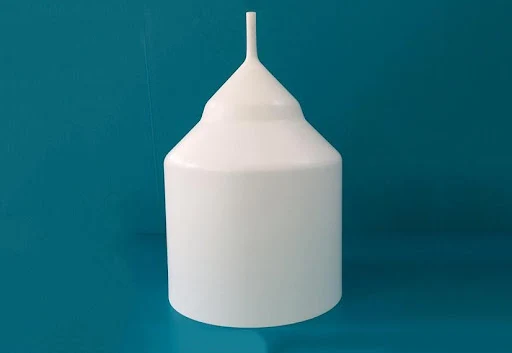Pyrolytic boron nitride (PBN) is a unique material that offers many advantages over other crucible materials, especially in high-temperature applications. From its exceptional thermal stability to its low reactivity with other materials, PBN stands out as an ideal material for a wide range of high-temperature processing needs. In this article, we'll explore why PBN is so well-suited for high-temperature applications, and what sets it apart from other materials like graphite, fused quartz, and alumina.
Exceptional Thermal Stability
PBN crucibles offer exceptional thermal stability that sets them apart from other materials. With a melting point of 3000°C, PBN is one of the most thermally stable materials available, and it can withstand extreme temperatures without cracking or breaking.
In addition, PBN has high thermal conductivity and very low thermal expansion coefficient, which makes it dimensionally stable even when exposed to sudden temperature changes. These properties make PBN ideal for use in various high-temperature processes, such as crystal growth, physical vapor deposition (PVD), chemical vapor deposition (CVD), and semiconductor production. PBN crucibles are highly effective in any application that requires a container capable of withstanding extremely high temperatures.
Moreover, PBN has excellent thermal uniformity and insulation properties, which have become increasingly popular in industries like electronics, aerospace, and defense. Additionally, PBN has high resistance to thermal shock and can withstand thermal cycling, which further contribute to its durability and longevity in high-temperature applications.
Low Reactivity
PBN's low reactivity with other materials is a significant advantage that makes it an ideal choice for high-temperature applications that require strict control over the processing environment. Because of its unique crystal structure, PBN is chemically inert and virtually impervious to most chemicals or gases at high temperatures, which helps prevent contamination of the materials being processed and reduces product defects.
Additionally, PBN's low reactivity eliminates the need for additional surface treatments such as protective coatings, leading to increased yields, reduced waste, and improved product quality. PBN's exceptional properties have also made it a popular choice in the manufacture of high-performance ceramics and composites, where precise control over processing environments is essential.
Moreover, PBN's chemical inertness lends itself well to the semiconductor industry, where it is used in the production of silicon wafers. PBN crucibles help reduce the contamination of silicon wafers during the growth process, critical to producing high-quality semiconductors. PBN is also widely used in the production of fiber optics, providing high purity and stability essential to the final product's performance and durability.
Extremely High Purity
PBN's high purity is one of its most notable attributes, making it a favored material in numerous high-temperature applications. This exceptional purity helps prevent contamination and ensures accurate results for manufacturing processes ranging from advanced ceramics to semiconductors.
In contrast to some other crucible materials, PBN contains no impurities or trace elements that could compromise the purity or integrity of the materials being processed. This remarkable purity is particularly critical in industries where precise control over processing environments is paramount, such as in high-performance aerospace components or advanced electronic devices.
Moreover, PBN's purity remains uncompromised even at extreme temperatures, allowing it to maintain its performance throughout the most demanding manufacturing operations. This consistency enables manufacturers to achieve more consistent product quality, higher yields, and reduced waste, while minimizing production costs.
Cost-Effective
PBN is an affordable option in comparison to other high-performance materials, making it a preferred choice for high-temperature processing applications where cost-effectiveness is essential. PBN's exceptional durability and long lifespan contribute significantly to its cost-effectiveness. Its robustness allows it to withstand even the most extreme temperatures and sudden temperature changes, minimizing downtime and reducing the likelihood of equipment failure. This durability also reduces the need for frequent maintenance, which can be expensive for large-scale manufacturing operations, ultimately lowering production costs and improving efficiency.
Conclusion
In conclusion, PBN crucibles offer unique advantages that make them an ideal choice for high-temperature applications. Their exceptional thermal stability, low reactivity, high purity, and cost-effectiveness make them a reliable and efficient option for a wide range of processing needs. If you're looking for a material that can withstand extreme temperatures and prevent contamination of your materials, pyrolytic boron nitride crucibles are the way to go.

